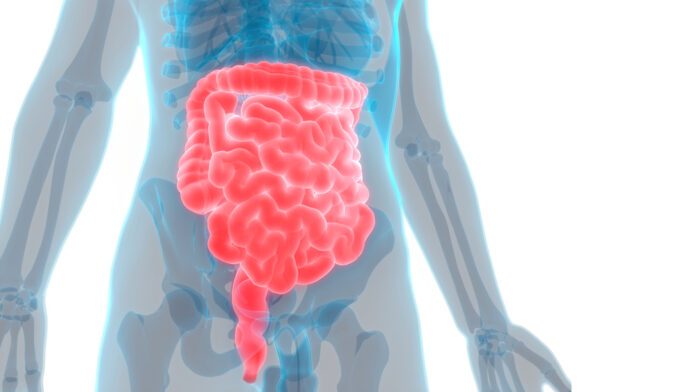Overview
Irritable bowel syndrome (IBS) is a common, long-term condition of the digestive system. Symptoms can include stomach cramps, bloating, diarrhea, and/or constipation. It is a condition that affects the functioning of the bowel.
IBS can begin in childhood, adolescence, or adulthood and can resolve unexpectedly for periods throughout an individual’s lifespan, recurring at any age. IBS is a health issue found in the intestines (gut).
Cause
Experts aren’t sure what causes IBS, but some factors can increase a person’s risk including:
● Gut infection. Contracting an infection in the gut like E. Coli, for example, Buxbaum says, because the gut immune system is dysregulated. IBS will appear soon after.
● Bacterial overgrowth such as SIBO (small intestine bacterial overgrowth) can cause IBS. “SIBO likely causes dysregulation of the intestinal immune system. Additionally, the gas production related to these bacteria may be perceived as intense bloating for those with visceral hypersensitivity [increased sensitivity to pain in the organs],” says Buxbaum. Visceral
● Mental health conditions such as anxiety, depression, or history of trauma. Buxbaum says these conditions are associated with visceral hypersensitivity, which is why people with these conditions may be more likely to develop IBS. Visceral hypersensitivity is believed to play a large role in IBS.
● Genetic predisposition. If the family has a history of IBS you’re more likely to get it.
Symptoms
IBS can cause symptoms such as:
- Belly pain.
- Cramping.
- Gas.
- Bloating (or swelling) of the belly.
- Change in the stool.
- Diarrhea (loose stool).
- Constipation (hard stool or trouble passing stool).
- Urgent need to go.
There are different types of IBS, so each person may not have the same symptoms.
- IBS-D: IBS with diarrhea
■ You may often have loose stool.
■ You may often feel an urgent need to move bowels.
■ You may often have cramps or belly pain.
- IBS-C: IBS with constipation
■ You may find it hard to move bowels.
■ You may not often move bowels.
■ You may have an urge to go but cannot go.
- IBS-M: IBS mixed
■ You may have symptoms of both IBS-D and IBS-C.
IBS, however, does not cause inflammation and should not be confused with ulcerative colitis, which is a more serious health problem.
Treatment
Treatment of IBS and associated symptoms may include:
● Dietary changes
Bloating, abdominal pain and diarrhea may respond to dietary modification. For example, caffeine or fatty foods stimulate colonic contractions, so someone with IBS and diarrhea might have improvement by reducing their daily intake of caffeinated beverages and rich foods.
Working with a nutritionist is always recommended to make sure you are still getting all the nutrients you need, no matter which diet you are on.
● Medications
Several medications can be used to treat IBS.
● Smooth muscle relaxants: These are best for relieving or preventing intestinal cramping.
● Antidiarrheal medications: Medications for those with diarrhea slow intestinal transit and reduce the frequency of bowel movements while improving the consistency of the stool.
● Laxatives: For patients who have constipation as the predominant symptom.
● Antibiotics: To attempt to alter the composition of the gut flora that might be responsible for the fermentation of poorly digested carbohydrates.
● Low-dose antidepressants: If pain and diarrhea are the predominant symptoms, you may find relief with these medications that work on the gut’s nervous system to make it less reactive to foods you eat or to emotional stress.
● Psychotherapy
There is a strong connection between the nervous system and colonic function. Stress plays an important role in the frequency and severity of symptoms in IBS patients. A history of stressful life events or a current stressful situation can often precede IBS. Some patients who lost loved ones report the onset of symptoms shortly after the loss. Others with a history of depression notice that when the depression returns their symptoms worsen. Sometimes anxiety or depression occurs with the onset of IBS symptoms.
If emotional stress is a trigger for the symptoms, several psychological interventions might be used. The most studied is cognitive behavioral therapy, which is effective for IBS. This type of therapy is provided by a trained mental health professional. Hypnotherapy has also been shown to help manage IBS symptoms.
● Alternative therapies
● Certain probiotics help manage some symptoms of IBS.
● Acupuncture may help manage anxiety, fibromyalgia, migraines, and insomnia associated with IBS. Acupuncture also can have a direct gastrointestinal effect by altering GI motility and pain perception.
● Therapeutic massage can help reduce anxiety and relieve stress.
Often, an integrated approach that combines these therapies works best.
Exams and Tests
There is no test to diagnose IBS. Most of the time, your health care provider can diagnose IBS based on your symptoms. Eating a lactose-free diet for 2 weeks may help the provider identify lactase deficiency (or lactose intolerance).
The following tests may be done to rule out other problems:
• Blood tests to see if you have celiac disease or a low blood count (anemia)
• Stool exam for occult blood
• Stool cultures to check for an infection
• Microscopic exam of a stool sample for parasites
• Stool exam for a substance called fecal calprotectin
Your provider may recommend a colonoscopy. During this test, a flexible tube is inserted through the anus to examine the colon. You may need this test if:
• Symptoms began later in life (over age 50)
• You have symptoms such as weight loss or bloody stools
• You have abnormal blood tests (such as a low blood count)
Other disorders that can cause similar symptoms to include:
• Colon cancer (cancer rarely causes typical IBS symptoms, unless symptoms such as weight loss, blood in the stools, or abnormal blood tests are also present)
• Crohn disease or ulcerative colitis
Source
https://www.nhsinform.scot/illnesses-and-conditions/stomach-liver-and-gastrointestinal-tract/irritable-bowel-syndrome-ibs
https://badgut.org/information-centre/a-z-digestive-topics/ibs/
https://gastro.org/practice-guidance/gi-patient-center/topic/irritable-bowel-syndrome-ibs/
https://www.healthdirect.gov.au/irritable-bowel-syndrome-ibs
https://www.insider.com/do-i-have-ibs
https://www.hopkinsmedicine.org/health/treatment-tests-and-therapies/irritable-bowel-syndrome-treatment



